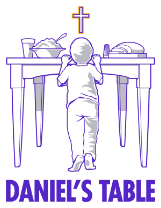Hypertension, often referred to as high blood pressure, is a common condition that affects many people worldwide. It occurs when the force of blood against the walls of the arteries is consistently too high.
To understand hypertension, think of your arteries as the highways that carry blood from your heart to all parts of your body. When blood is pumped out by the heart, it creates pressure against the walls of the arteries. This pressure is necessary to deliver oxygen and nutrients to your organs and tissues.
However, when this pressure remains consistently high, it can strain the arteries and damage them over time. This can lead to various health problems, including an increased risk of heart disease, stroke, kidney disease, and other complications.
High blood pressure is defined as systolic pressure of 130 or higher, or a diastolic pressure of 80 or higher.
There are two types of hypertensions: primary (essential) and secondary. Primary hypertension is the most common type and doesn’t have a specific identifiable cause. It often develops gradually over time and is influenced by factors such as age, family history, lifestyle choices, and certain underlying conditions. Secondary hypertension, on the other hand, is caused by an underlying health condition, such as kidney problems or hormonal disorders.
The interesting thing about hypertension is that it usually doesn’t cause noticeable symptoms on its own. That’s why it’s often referred to as the “silent killer.” Many people may not even know they have high blood pressure until it is measured during a routine check-up. That’s why regular blood pressure screenings are essential.
The good news is that hypertension can be managed and controlled through lifestyle changes and, if necessary, medication. Lifestyle modifications include adopting a healthy diet, low in sodium (salt) and saturated fats, engaging in regular physical activity, maintaining a healthy weight, limiting alcohol consumption, and avoiding tobacco products. These changes can help lower blood pressure and reduce the risk of complications.
In some cases, medication may be prescribed by a healthcare professional to help manage hypertension. These medications work in various ways to relax blood vessels, reduce fluid volume, or lower the heart’s workload, all of which contribute to lowering blood pressure.
It’s important to take hypertension seriously and work closely with your healthcare provider to monitor and manage your blood pressure effectively. By doing so, you can reduce the risk of serious health complications and improve your overall well-being.

